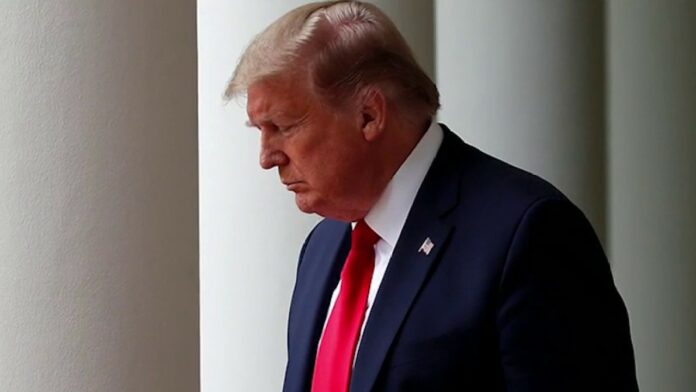In August 2016, The Washington Post promoted a new book by its reporters titled “Trump Revealed” that sounded an alarm. A book blurb from USA Today announced, “Any voter who is not already devoted to Trump‘s cause will find plenty of reason to think long and hard about whether to support him after reading this book.”
The Post wrote no book in 2016 titled “Hillary Clinton Revealed.” No one needed a warning about her.
Now The Post is promoting a new election-year book by their “fact-checker” squad: chief Glenn Kessler and his lieutenants Salvador Rizzo and Meg Kelly. The title is “Donald Trump and His Assault on Truth: The President’s Falsehoods, Misleading Claims, and Flat-Out Lies.”
TIM GRAHAM: ROSENSTEIN TESTIFIES – AND SUDDENLY MAINSTREAM MEDIA SAY THIS ABOUT RUSSIA COLLUSION
It will land softly on the liberal bookshelf next to the other 2020 opus written by Post reporters, “A Very Stable Genius: Donald J. Trump’s Testing of America.”
More from Opinion
Unfortunately, a newspaper ad for the Kessler book quoted President Donald Trump as boasting, “I have the greatest economy in the history of this country” and dated it Dec. 18, 2020. It’s sad when your fact-checker advertisements contain glaring errors.
The Post is well-known for starting a database of Trump’s “false and misleading claims,” and its count recently passed 19,000. Trump has a casual relationship with the truth. Even MAGA hat-wearing Trump boosters know it. When he claims windmills cause cancer, it’s easy pickings for “fact-checkers.” But many of The Post’s Pinocchios ratings are awarded for boasting.
The most common “lie” is Trump talking up the “greatest economy in the history of this country.” The Post has routinely flagged Trump for claiming black unemployment was lowest “in the history of our country” when it has only been measured since 1972.
Donald Trump is not a dictator. Nobody’s jailing anyone at The Washington Post for maintaining anti-Trump databases and screaming, “Democracy dies in darkness!” like a panic-stricken teenager on the front page every day.
This same nitpicking police have allowed former President Barack Obama and former Vice President Joe Biden to boast there was never a scandal during their tenure. That’s an obvious bald-faced lie. But Kessler wrote in 2017: “We are going to leave this without a rating. As we noted, scandals are in the eye of the beholder.”
There’s a Big Lie at the end of the “fact-checker” book: a passage from page 261, in the concluding chapter, titled “Toward a Resurgence of Truth.” It was plucked out and celebrated by CNN host Brian Stelter, since it’s a favorite Big Lie on the left.
The authors claim Trump is like a dictator: “A hallmark of authoritarian regimes is to call truth into question – except as the regime defines it. Russian President Vladimir Putin offers up a fog of disinformation to maintain power, including denying obvious facts (such as Russian involvement in the downing of Malaysia Airlines Flight 17), spouting falsehoods and deflecting attention with nonsensical comparisons (dubbed ‘whataboutism’).”
CLICK HERE TO SIGN UP FOR OUR OPINION NEWSLETTER
Then the authors quote former U.S. Ambassador to Russia Michael McFaul as saying, “A cumulative effect of all these tactics is nihilistic debasement of the very concept of truth.”
This “authoritarian” lie was repeated when Kessler appeared on “Morning Joe” on June 2. Co-host Mika Brzezinzki said Trump isn’t just assaulting truth. “It’s also an assault on our democracy.” Kessler said, “Correct.”
This is what Kessler calls a Bottomless Pinocchio, an often-repeated untruth.
CLICK HERE TO GET THE FOX NEWS APP
Donald Trump is not a dictator. Nobody’s jailing anyone at The Washington Post for maintaining anti-Trump databases and screaming, “Democracy dies in darkness!” like a panic-stricken teenager on the front page every day.
We have an election in November. No one has canceled it. But liberal journalists speculate that imaginary tyrant Trump will never leave office if he loses … which is laughable since they’ve never accepted he was legitimately elected in the first place.






